Archive
25 January 2022
New Chair Delft Institute of Applied Mathematics (DIAM)

10 January 2022
TU Delft builds decarbonised energy system for the built environment
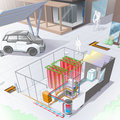
The energy transition will be felt most keenly in residential areas, where there are major challenges. . At The Green Village – the field lab for sustainable innovation on the TU Delft Campus – a unique project to accelerate the energy transition in the built environment will start on Friday 14 January: the 24/7 Energy Lab.
22 December 2021
Two Veni grants for decisive mathematical research
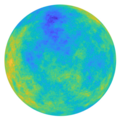
Young mathematicians Carolina Urzúa Torres and Kristin Kirchner have both received a NWO Veni grant for their promising research. Both of them will develop more efficient computational methods. For Maxwell's equations, which form the mathematical basis for dealing with electromagnetic radiation, and for evaluating large spatiotemporal datasets – that is, data that has been collected over time and space.
16 December 2021
TU Delft’s 180th anniversary: Speeding up the energy transition

From 14 January 2022 onwards, TU Delft celebrates its 180th anniversary. To mark the occasion, we want to highlight our role in the energy transition.
15 December 2021
TU Delft opens 32 vacancies for PhD candidates, in 8 new TU Delft AI Labs

TU Delft is looking for talented PhD students to join eight new TU Delft AI Labs. Over the next few years they will tackle the question 'How can you accelerate scientific progress with the help of artificial intelligence (AI)?'. Because AI plays a role in all fields of science, the research will involve collaboration between scientists specialising in AI and those working in other disciplines.
08 December 2021
New method predicts drug response of cancer patients
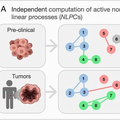
Researchers from Delft University of Technology and the Netherlands Cancer Institute (NKI) have developed an algorithm to predict patient response to anti-cancer drugs. This allows us to identify more rapidly if some drugs can have a positive effect on a specific patient, even for complicated medicines such as chemotherapies where response is typically hard to predict. This method is called TRANSACT and makes use of the wealth of data previously collected through research with cell lines.
18 November 2021
The Best Tech Idea of 2021: processor and memory in one
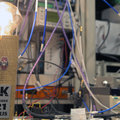
Said Hamdioui's 'computation-in-memory' is the Best Tech Idea of 2021 according to the jury of KIJK magazine. The jury praised Said's computer architecture for making numerous new innovations possible: "the Internet of Things requires large amounts of computers that all must be very energy-efficient. Memristors can be the basis for this and that makes this idea, however young, very important."
02 November 2021
TU Delft professors now also officially 'Medical Delta Professor'

On Tuesday 2 November nine professors have been officially inducted as 'Medical Delta Professor'. This took place during a festive meeting as part of the Medical Delta Conference. The professors have each earned their reputations doing research in the field between health and technology. They all officially combine at least two appointments at Leiden University, LUMC, TU Delft, Erasmus University and/or Erasmus MC. With these dual appointments and their research they bring technology and health care closer together.
29 October 2021
Inexplicably stable electron pairs without superconductivity
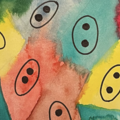
Researchers from Leiden University, together with TU Delft, SRON, and others, have discovered a new form of 'quantum liquid'. Advanced knowledge of superconducting materials, gained in part through astronomical research and the development of quantum computers, was a key factor in the research. However, although this new quantum fluid is demonstrated, it is still completely unexplainable. Indeed, it turns a number of standard theories upside down. The results are published in Science.
22 October 2021
Final publication research programme smart energy systems
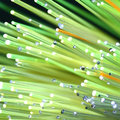
Over the past 8 years, research has been carried out into smart energy systems. The final publication of the URSES* research programme has now been delivered. An interdisciplinary study and TU Delft was one of the 51 partners in the research programme. This included the PMU project, led by Marjan Popov, lecturer and researcher at TU Delft, Faculty of Electrical Engineering, Mathematics and Computer Science (EEMCS). He investigated a way to monitor the electricity network.
19 October 2021
Mapping the brain motor cortex region in detail
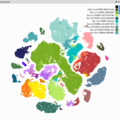
In a major study funded by U.S Government, an international consortium of researchers successfully mapped the different types of brain cells in the motor cortex. Scientists from the Leiden University Medical Center (LUMC) and Delft University of Technology (TU Delft) contributed specific expertise to visualize the data.
08 October 2021
Best-paper award for Quinten Stokkink
27 September 2021
ROBUST: multi-year research into more reliable artificial intelligence

Artificial Intelligence (AI) has the potential to solve some of society's most important challenges, for example the mounting pressure on healthcare, while at the same time enriching and improving many other aspects of our society, such as transport. In short, the impact of AI is enormous, and it may even become the foundation of our future. Therefore, it is extra important that we are sure that all developed AI systems and techniques are completely reliable. The ROBUST consortium, in which TU Delft plays an essential role in the field of fundamental and applied AI knowledge, investigates how AI-based systems can be made safer and more reliable – and thus better contribute to social issues.
24 September 2021
TU Delft set to future-proof electricity grid
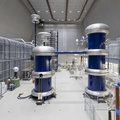
In order to ensure that the electricity grid is prepared for the future, TU Delft, the Dutch government and partners including grid operator TenneT have joined forces to build a brand-new laboratory: the Electrical Sustainable Power Lab, otherwise known as the ESP Lab. The laboratory – described as a ‘veritable temple of sustainability’ – will be officially opened on the afternoon of Friday, 1 October 2021.
22 September 2021
Now everyone can build battery-free electronic devices
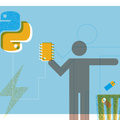
Last year, computer engineers from Delft University of Technology (TU Delft) and Northwestern University introduced the world’s first battery-free Game Boy, which harvests both solar energy and the user’s kinetic energy from button mashing to power an unlimited lifetime of game play. The same team now introduces a new platform that enables makers, hobbyists and novice programmers to build their own battery-free electronic devices that run with intermittent, harvested energy.
16 September 2021
Position paper: AI as an accelerator of the energy transition
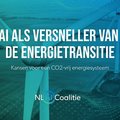
Making a significant contribution to creating opportunities for a CO2-free energy system, this is what 150 representatives from the business community, knowledge institutions and government are working on within the Dutch AI Coalition. The Energy and Sustainability working group collaborated on the position paper 'AI as an accelerator of the energy transition', which sets out the opportunities for a CO2-free energy system. Researchers from TU Delft have made an active contribution to this agenda.
26 August 2021
#SIGCOMM 2021 Best paper: "Seven years in the life of Hypergiants' off-nets"

Prof. Georgios Smaragdakis (Cybersecurity group) and colleagues from UCL, Microsoft, Columbia University, and FORTH were awarded the Best paper award in ACM SIGCOMM 2021 for their paper: "Seven Years in the Life of Supergiants' off-nets." SIGCOMM is the ACM flagship conference in Internet Architecture and Networking.
04 August 2021
New method to measure loss of signal in far-infrared instruments
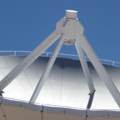
23 June 2021
Annoesjka Cabo appointed Director of Education
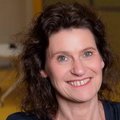
Vanaf 15 juli 2021 is Annoesjka Cabo benoemd tot directeur onderwijs aan de faculteit Elektrotechniek, Wiskunde en Informatica. Daarmee volgt zij Geert-Jan Houben op die zich als pro vice rector magnificus gaat focussen op het leiding geven aan de activiteiten van de TU Delft AI initiative.
23 June 2021
UvA, TU Delft and Booking.com collaborate on research into better recommendation systems
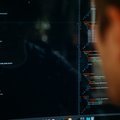
In the Mercury Machine Learning Lab, researchers from the University of Amsterdam (UvA) and Delft University of Technology (TU Delft) will be working together with Booking.com on various improved recommendation systems.
16 June 2021
Lunar Zebro and TNO join forces to pave the way to the Moon
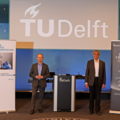
Lunar Zebro, an ambitious team at TU Delft will work together with TNO (The Netherlands Organization for Applied Scientific Research) to build the lightest and smallest Moon rover to date.
15 June 2021
Grants for research on energy transition in Delft
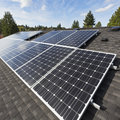
Energy transition is one of the greatest challenges of our time. The transition to sustainable energy is complex and requires change at multiple levels. Three Delft research groups, with an grant from NWO, will conduct research into system integration within the energy transition.
10 June 2021
Heading for AI: a joint agenda for maritime ambitions in the field of AI

The Port & Maritime working group of the Dutch AI Coalition (NLAIC) has presented a position paper ‘Koersen op AI‘ (Heading for AI) on 10 June 2021, detailing the maritime ambitions in the field of AI. As part of the core group of this working group, TU Delft researchers have actively contributed to this joint agenda.
30 April 2021
Arthur Weber in de Volkskrant over de 'zonne-oorlog' waarom Europa zijn eigen zonnepanelen moet gaan produceren

26 April 2021
Royal Honours for mathematician Kees Vuik
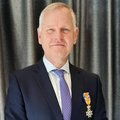
Today Professor Kees Vuik, expert in the field of numerical analysis, received a Royal Distinction.
22 April 2021
European grant for TU Delft research into virus spread
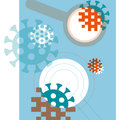
The European Union has awarded TU Delft researcher Piet Van Mieghem an ERC Advanced Grant.
22 April 2021
TU Delft simulations help optimize solar cell efficiency
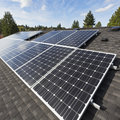
An international photovoltaics working group has developed a new transparent material to serve as a top layer for solar cells, based on nanocrystals. According to simulations performed by the participating TU Delft researchers, this layer can increase the efficiency of mass-produced solar cells to within a percent of their practical limit.
07 April 2021
Stopping Alzheimer’s before it starts

This week the Dutch project ABOARD (A personalized medicine approach for Alzheimer’s disease), a collaboration of more than thirty partners, has been launched. ABOARD aims to prepare for a future in which Alzheimer’s disease is stopped before dementia has started. ABOARD achieves this by improving diagnostic markers, developing personalized risk scores and by focusing on prevention through increased awareness of dementia and brain health.
26 March 2021
TU Delft builds supercomputer on own campus
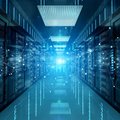
TU Delft is building the Delft High-Performance Computing Centre (DHPC). This supercomputer complements existing national and cloud-based facilities, and offers academics and students greater flexibility when conducting their research. The arrival of the supercomputer is accompanied by a comprehensive training programme addressing the effective use of computing facilities.
08 March 2021
International Women's Day 2021
10 February 2021
5.7 million euro for hybrid energy storage systems
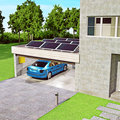
The Dutch Ministry of Economic Affairs and Climate Policy has allocated 5.7 million euro to FLEXINet. In the upcoming years, the FLEXINet consortium will develop hybrid energy storage systems – capable of storing both heat and electricity. Pavol Bauer, professor at TU Delft and project leader and coordinator: ‘The aim of FLEXINet is a system that accelerates the energy transition. We hope to make a substantial contribution to reaching climate targets by cleverly combining various techniques – think of blending recycled batteries with flexible heat pumps and the charging of electric cars.’
09 February 2021
TU Delft scores at Olympic Games for chip designers

De Olympische Spelen vormen een graadmeter voor de sportprestaties per land. Maar wat weinig mensen weten, is dat er in de wereld van geïntegreerde schakelingen (chips) en slimme sensoren ook zo’n sportief meetmoment bestaat. Namelijk: de ISSCC. Voluit: de International Solid-State Circuits Conference. Het zijn de Olympische Spelen voor chipontwerpers, en die kent een geheel eigen medaillespiegel. Een klassement waarin de TU Delft tot de absolute top behoort.
28 January 2021
TU Delft launches new series of TU Delft AI Labs

TU Delft is launching a new series of eight TU Delft AI Labs today. In these labs, scientists are using artificial intelligence (AI) to accelerate scientific progress and help solve societal issues. Another eight labs will be launched later in 2021, bringing the total to 24. In the past year, almost all sixteen of the new Assistant Professor posts opened as part of this programme thus far have been filled. The recruitment of 32 PhD students for the new TU Delft AI Labs will start end of February. In addition, TU Delft will present the labs at the MIT European career fair on 25 February.
20 January 2021
Cynthia Liem new member of The Young Academy
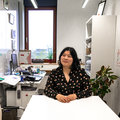
The Young Academy has appointed ten new members of which EEMCS scientist Cynthia Liem.
11 January 2021
DSM and TU Delft launch AI4B.io Lab

Royal DSM and TU Delft today announce the establishment of the Artificial Intelligence Lab for Biosciences (the AI4B.io Lab). This laboratory will be the first of its kind in Europe to apply artificial intelligence (AI) to full-scale biomanufacturing, from microbial strain development to process optimization and scheduling.
06 January 2021
Start-up Geronimo.AI uses artificial intelligence to create order in data
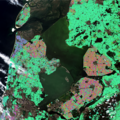
Royal HaskoningDHV and Delft University of Technology have agreed to further strengthen the existing collaboration in research, field labs, innovation, start-ups, education and talent. To this effect, a Memorandum of Understanding was signed last Thursday by Royal HaskoningDHV CEO Erik Oostwegel and Delft University of Technology President and Rector Magnificus Tim van der Hagen.
09 December 2020
ERC Consolidator grants for TU Delft researchers
The ERC has awarded a Consolidator Grant to Stan Brouns, Kristof Cools and Simon Gröblacher from TU Delft. With this support, they will be able to consolidate their teams and have farreaching impact. It was the first ERC Consolidator Grant application process that was conducted completely online.
08 December 2020
Is it memory? Is it a processor? No, it’s both and super-efficient!

Emerging applications for Internet of Things devices – such as personalised healthcare, augmented reality and artificial intelligence – require vast computational power to be integrated into the device itself, but at only a fraction of the energy consumption attainable with current computer architectures. Researchers of the MNEMOSENE project# provided a proof-of-concept of an ultra-low power Computation-in-Memory architecture – a feat for which overall project leader Professor Said Hamdioui was recently presented the prestigious European Union ECS Innovation Award 2020.
03 December 2020
TU Delft appoints ‘Pro Vice-Rector’ of AI, Data and Digitalisation

The Executive Board of TU Delft has appointed Professor Geert-Jan Houben as Pro Vice-Rector Magnificus of Artificial Intelligence, Data and Digitalisation (PVR AI) with effect from 1 December 2020. In this role Houben will be leading the TU Delft AI Initiative and promoting regional, national and international co-operation on this theme.
23 November 2020
Photovoltatronics: smart solar cells that talk to each other

Imagine you’re looking at a skyscraper. Every single piece of their surface is generating and storing its own electricity!